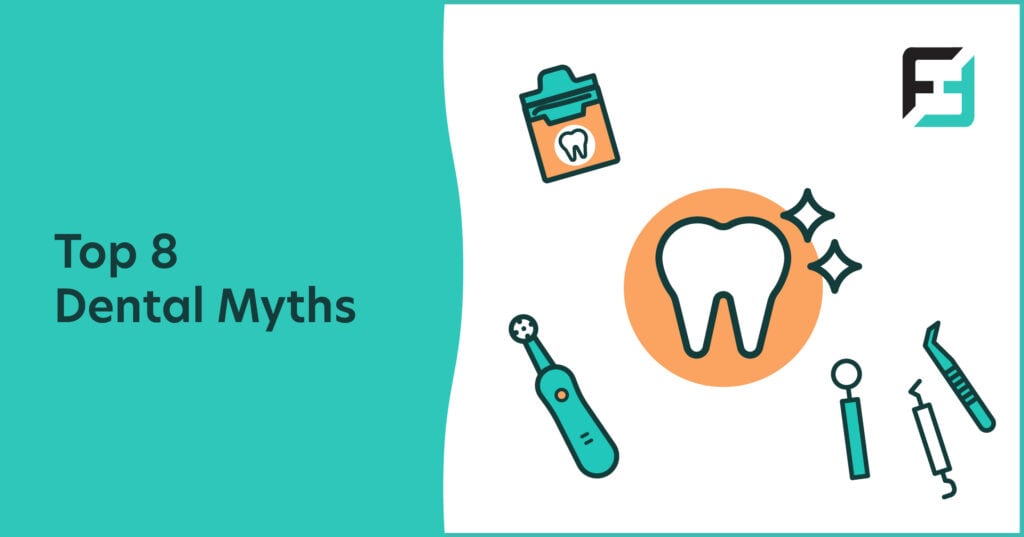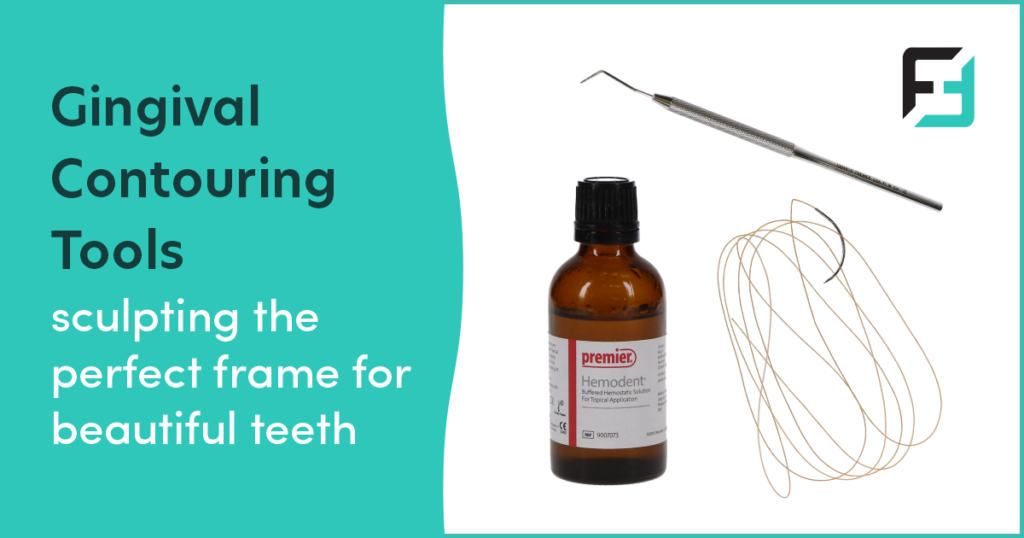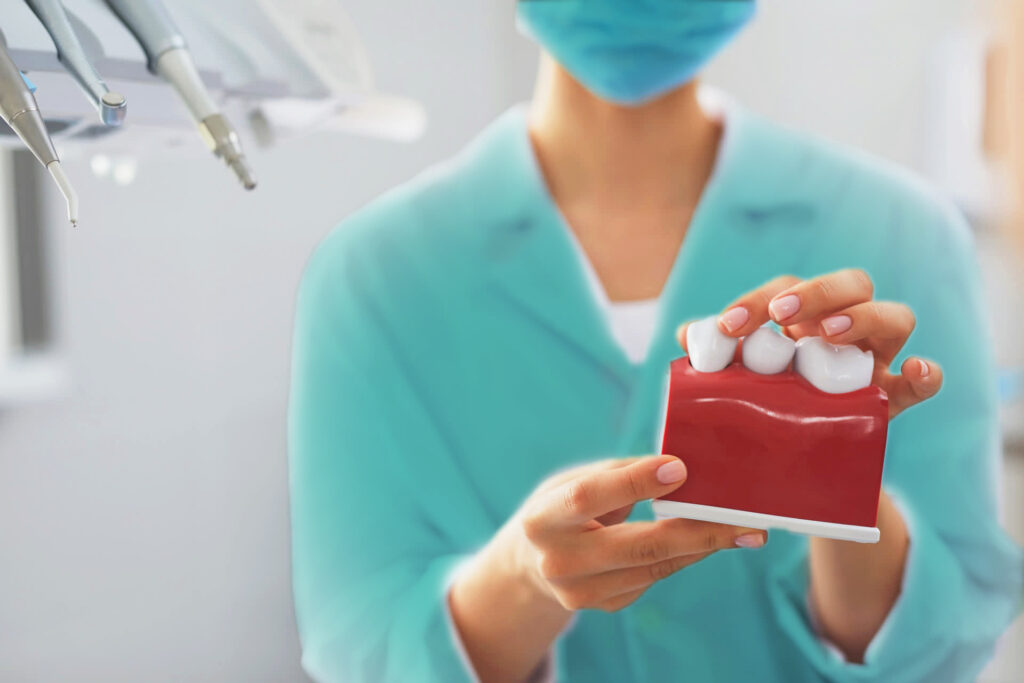Fact vs. Fiction: Debunking Common Dental Misconceptions
Numerous myths and misconceptions persist that can confuse and mislead people when it comes to their dental health. The consequence of these dental myths is the risk that individuals will act upon them and not take proper care of their teeth and gums. Maintaining good oral health is essential for overall well-being, meaning it is imperative that dentists and dental professionals educate their patients on the dangers of common misconceptions surrounding dental care.
The abundance of dental myths means these misconceptions exist in various facets of dental care, such as flossing, childhood dental care, teeth cleanings, and dental procedures and conditions like teeth whitening, cavities, and more. This article will debunk the top eight most common dental misconceptions that could do more harm than good so you can make informed decisions about your oral health in the future.
Oral Hygiene at Home

Fiction #1: Brushing your teeth harder clean them better
Fact: Many people believe that applying excessive force while brushing will lead to cleaner teeth and attack the harder-to-reach plaque. However, brushing too hard can harm your gums and tooth enamel, leading to more problems in the long run. It is important to use gentle, circular motions and a soft-bristled toothbrush for effective cleaning that will not cause adverse damage.
Fiction #2: Flossing is not necessary if you brush twice a day
Fact: Flossing is an essential part of maintaining good oral hygiene. Brushing alone cannot reach the tight spaces between teeth, where plaque and food particles can accumulate. Regular flossing helps remove debris, reduces the risk of gum disease, and promotes healthy gums.
Fiction #3: Baby teeth don't matter because they will fall out
Fact: Baby teeth plays a crucial role in speech development, proper chewing, and maintaining space for permanent teeth. Neglecting baby teeth can lead to oral health issues, such as misalignment and decay, which can impact the health of permanent adult teeth. Once the first tooth appears, you can start brushing with a soft-bristled toothbrush designed for infants to clean their teeth and gums.
Fiction #4: Chewing sugar-free gum is as effective as brushing
Fact: Chewing sugar-free gum can help stimulate saliva flow and neutralize acids in the mouth, but it is not a substitute for brushing and flossing. While sugar-free gum is not harmful per se, it cannot remove plaque and food particles as effectively as proper oral hygiene practices.
Dental Check-ups, Conditions, and Procedures

Fiction #5: You only need to see a dentist if you have a problem
Fact: Even if your teeth appear healthy, there can be underlying issues that only a dental professional can detect. Regular dental check-ups allow early detection of oral health problems like gum disease, oral cancer, and tooth decay. Prevention is always better than cure.
Fiction #6: Teeth cleanings are unnecessary if you brush well
Fact: Regular professional teeth cleanings are crucial for maintaining oral health, regardless of how well you brush at home. Dental cleanings remove plaque and tartar buildup, which cannot be effectively removed by brushing alone. Additionally, dental professionals can identify early signs of dental issues and provide preventive care.
Fiction #7: Teeth whitening damages tooth enamel
Fact: Professional teeth whitening procedures, when performed correctly, are completely safe and will not damage tooth enamel. However, overusing over-the-counter whitening products or using non-approved methods can lead to enamel erosion if you do not know what you are doing. It is always best to consult a dentist before undergoing any whitening treatment.
Fiction #8: Sugar is the sole cause of cavities
Fact: While sugar is a significant factor in tooth decay, it is not the sole cause, as often considered a fact. Bacteria in the mouth feed on sugars and produce acids that erode tooth enamel. However, poor oral hygiene, infrequent dental visits, and certain medical conditions can also contribute to the development of cavities. The point is sugar should not be the only concern for maintaining cavity-less and healthy teeth.
Conclusion
Overall, it is essential to separate fact from fiction to ensure optimal oral health. By debunking these common dental myths and misconceptions, we hope to provide you with more accurate information to make informed decisions about your dental care and oral health. Remember to consult a dental professional for personalized advice to maintain good oral hygiene practices and keep your smile healthy and beautiful.




